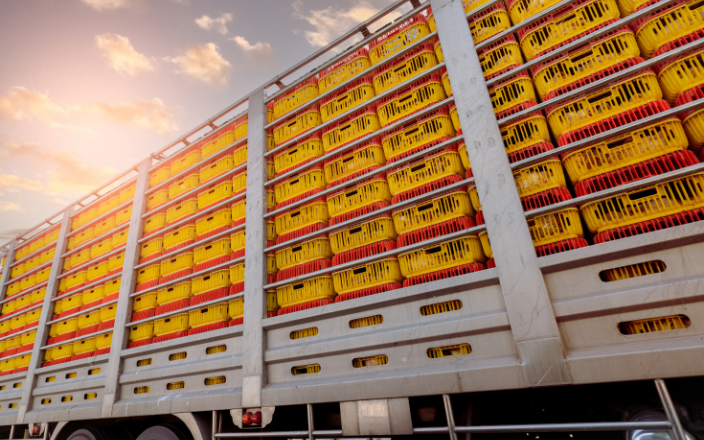The recent roadblocks on the Mexico-Puebla highway have had a significant impact on various sectors, particularly the poultry industry in Tehuacán. These blockades, initiated by ejidatarios demanding compensation for expropriated lands, have led to a dramatic increase in transportation costs, affecting the supply chain and overall economic stability of the region.
Background of the blockades
The blockades began as a protest by ejidatarios from Santa Rita Tlahuapan, Puebla, who are demanding payment for lands expropriated decades ago for the construction of the highway. The protests have caused significant disruptions, with the highway being one of the main arteries for commerce between southern and central Mexico. The economic losses due to these blockades have been substantial, with estimates reaching up to 131 billion pesos.
Impact on the poultry industry
Tehuacán, known for its robust poultry industry, has been particularly hard hit by these disruptions. The roadblocks have forced poultry transporters to take longer, alternative routes to avoid being stranded. This detour has effectively doubled the transportation costs for poultry products, including eggs and chicken. According to Jorge García de la Cadena Romero, president of the Tehuacán Poultry Association, the increased costs are primarily due to the longer distances and additional fuel required for these alternative routes.
Economic consequences
The doubling of transportation costs has several cascading effects on the poultry industry. Firstly, it increases the overall cost of production, which in turn raises the prices of poultry products for consumers. This price hike can lead to reduced demand, further straining the industry. Additionally, the increased costs can erode profit margins for poultry farmers and transporters, potentially leading to financial instability and job losses within the sector.
Moreover, the delays caused by the blockades have resulted in spoilage of perishable goods. Poultry products, which often require refrigeration, are particularly vulnerable to delays. The spoilage not only represents a direct financial loss but also affects the supply chain, leading to shortages in the market.
Government response
In response to the crisis, President Andrés Manuel López Obrador has called for patience and trust from the protesting ejidatarios, assuring them that their demands will be addressed fairly. However, he has also emphasized the need for a lawful and just resolution, warning against being misled by opportunistic legal advisors. The government has been working to negotiate with the protesters to clear the blockades and restore normalcy to the affected regions.
Conclusion
The roadblocks on the Mexico-Puebla highway have highlighted the vulnerabilities in the supply chain and the significant impact that such disruptions can have on local industries. For Tehuacán’s poultry industry, the doubling of transportation costs has created a challenging economic environment, with broader implications for the region’s economy. A swift and fair resolution to the conflict is essential to mitigate further economic damage and restore stability to the affected sectors.
Sources: Available upon request

